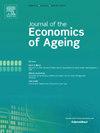Social engagement and health in an aging society: Impact of Basic Old-Age Pension in Korea
IF 2
3区 经济学
Q2 DEMOGRAPHY
引用次数: 0
Abstract
Despite older people’s notable contributions to economic growth in Korea, a significant proportion of them were left financially unprepared for old age and faced a high risk of poverty after retirement. In 2007, the National Pension was reformed to gradually lower the income replacement ratio from 60 % to 40 %. The Korean government implemented the Basic Old-Age Pension (BOAP) to compensate for the loss in pension income in 2008. While the BAOP benefits mitigate income poverty, it may also have spillover effects on social activities and health outcomes that older people are likely to be deprived of. We use the 2006–2020 Korean Longitudinal Study of Aging for the analysis. Using a doubly robust difference-in-differences model and event study, we investigate the impact of BOAP on social engagement and the health of older people. The results show that BOAP recipients tend to have more frequent meetings with children and are likely to have a better relationship with children while they are less likely to participate in social groups and have fewer social group meetings. These results are more evident among those recipients who have received pension benefits for longer years. We find a greater positive impact of BOAP on the health of non-employed, non-married, and poor recipients and the social activities of women, employed, and non-poor recipients. The impact of BOAP may vary by gender, employment status, marital status, and poverty status but the overall results emphasize the continual assistance of BOAP in promoting the social engagement and health of older Koreans.
老龄化社会的社会参与与健康:韩国基本养老金的影响
尽管老年人对韩国的经济增长做出了巨大贡献,但他们中的很大一部分人在养老方面没有做好准备,退休后面临贫困的风险很高。2007年,国民养老金改革,逐步将收入替代率从60%降低到40%。韩国政府为了弥补养老金收入的损失,从2008年开始实施了基本养老金制度(BOAP)。虽然BAOP福利减轻了收入贫困,但它也可能对老年人可能被剥夺的社会活动和健康结果产生溢出效应。我们使用2006-2020年韩国老龄化纵向研究进行分析。采用双重稳健的差异中差异模型和事件研究,我们调查了BOAP对老年人社会参与和健康的影响。结果表明,BOAP接受者往往与儿童有更频繁的会面,可能与儿童有更好的关系,但他们不太可能参加社会团体,也较少参加社会团体会议。这些结果在那些领取养老金年限较长的人身上更为明显。我们发现,BOAP对非就业、未婚和贫困受助人的健康以及妇女、就业和非贫困受助人的社会活动产生了更大的积极影响。BOAP的影响可能因性别、就业状况、婚姻状况和贫困状况而异,但总体结果强调BOAP在促进韩国老年人的社会参与和健康方面的持续援助。
本文章由计算机程序翻译,如有差异,请以英文原文为准。
求助全文
约1分钟内获得全文
求助全文
来源期刊

Journal of the Economics of Ageing
Multiple-
CiteScore
4.10
自引率
4.50%
发文量
46
审稿时长
49 days
期刊介绍:
The Journal of the Economics of Ageing (JEoA) is an international academic journal that publishes original theoretical and empirical research dealing with the interaction between demographic change and the economy. JEoA encompasses both microeconomic and macroeconomic perspectives and offers a platform for the discussion of topics including labour, health, and family economics, social security, income distribution, social mobility, immigration, productivity, structural change, economic growth and development. JEoA also solicits papers that have a policy focus.
 求助内容:
求助内容: 应助结果提醒方式:
应助结果提醒方式:


